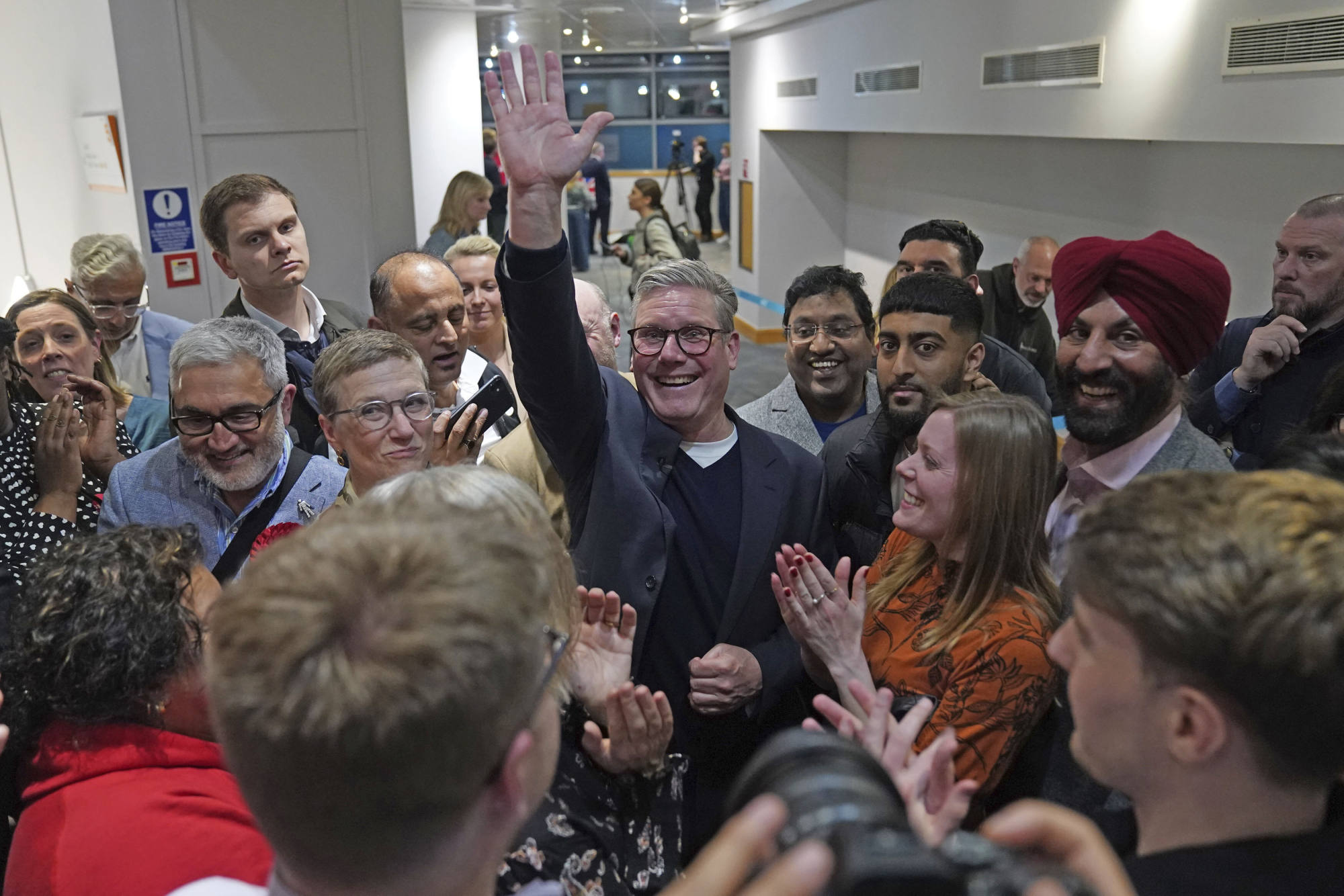“It is more likely that this [trade deal] will be concluded after the general election,” he said of the agreement hailed as a shot in the arm for trade between both sides. The proposed deal would be one of the key discussion points at an India Week event to be held in London in early July.
The next United Kingdom general election must be held no later than January 2025, which will determine the composition of the House of Commons and the next UK government. In January, Sunak said he expected to go to the polls “in the second half” of this year.
The trade deal could help Britain open up access to the vast Indian market, which could compensate for the loss of the EU market, while India could benefit from a reduction of duties and non-trade barriers, thereby boosting its exports.
Bilateral trade between India and Britain in 2022-23 was US$20.36 billion, up from US$17.5 billion in 2021-22, according to data from the Indian government.
Brexit, Britain’s withdrawal from the European Union in January 2020, had weakened the UK’s economic growth and distracted politicians from basic policymaking for several years, Dattani said.
The losses in local elections have strengthened expectations that the Conservative Party could make way for the Labour Party, which is likely to spell a period of uncertainty for Britain’s trade deals.
“The Labour Party has not said how it will engage with India,” Dattani said.

Others said the UK faced hard choices following Brexit.
Priyajit Debsarkar, a London-based British-Indian author, said upbeat sentiment in Britain that the nation was free to set its own tariffs and strike its own trade deals globally appeared to have waned.
“It is now safe to conclude that the vision of a global Britain has fallen flat and exit from the union has failed to transform the country into an economic superpower,” he said.
India and Britain launched negotiations in January 2022 to remove a number of trade barriers to work towards a free-trade agreement. Former UK Prime Minister Boris Johnson had declared that the agreement would be completed by Diwali 2022.
Trade sources said the broad contours of the agreement were in place and the deal was only awaiting finishing touches. No new date has been announced for when it will go into force.
“The best way forward is to go step by step, starting with the easy aspects first and then go to the more difficult aspects,” said Rami Ranger, a Conservative member of the UK parliament.
The tougher portions of the deal include things such as transfer of technology in sensitive industries. “We should not go for an all-or-nothing approach,” Ranger said.

But he added that political uncertainty was unlikely to materially affect the deal.
“The UK-India trade deal will be the mother of all deals. It will be between the fourth- and the fifth-largest economies and given the size of India’s market, it will be a huge deal,” Ranger said, adding that the agreement was more important to Britain than India.
The India-UK trade deal is expected to serve as a template for another trade deal that New Delhi has been working on with the EU. Besides exports of goods, the deals could determine export of services, such as India’s pool of IT workers.
Speed bumps
The India deal could face some speed bumps due to the current environment, one analyst said, but expressed confidence that it would come through.
“Yes, the Conservative Party may not come back to power, but the Labour Party won’t ditch the trade deal,” said TS Vishwanath, principal adviser at ASL-Legal and a trade analyst.
“For the UK today, when they are not part of the EU, it becomes very important now to have trade deals with important countries if they want to engage with the world and remain relevant globally.”

But discussions could “start all over again” should there be a new government in Britain, he noted, adding there was a chance for the Conservative Party to try to push through the deal before the election.
Dattani, however, said that was unlikely to happen before the election because the government would need the electoral mandate to cement it.
India recently reached free trade agreements with Australia and Mauritius.
India is in the midst of a general election, with Prime Minister Narendra Modi’s ruling Bharatiya Janata Party expected to return to power, although it remains uncertain whether it will need support from allied parties to form a government.

